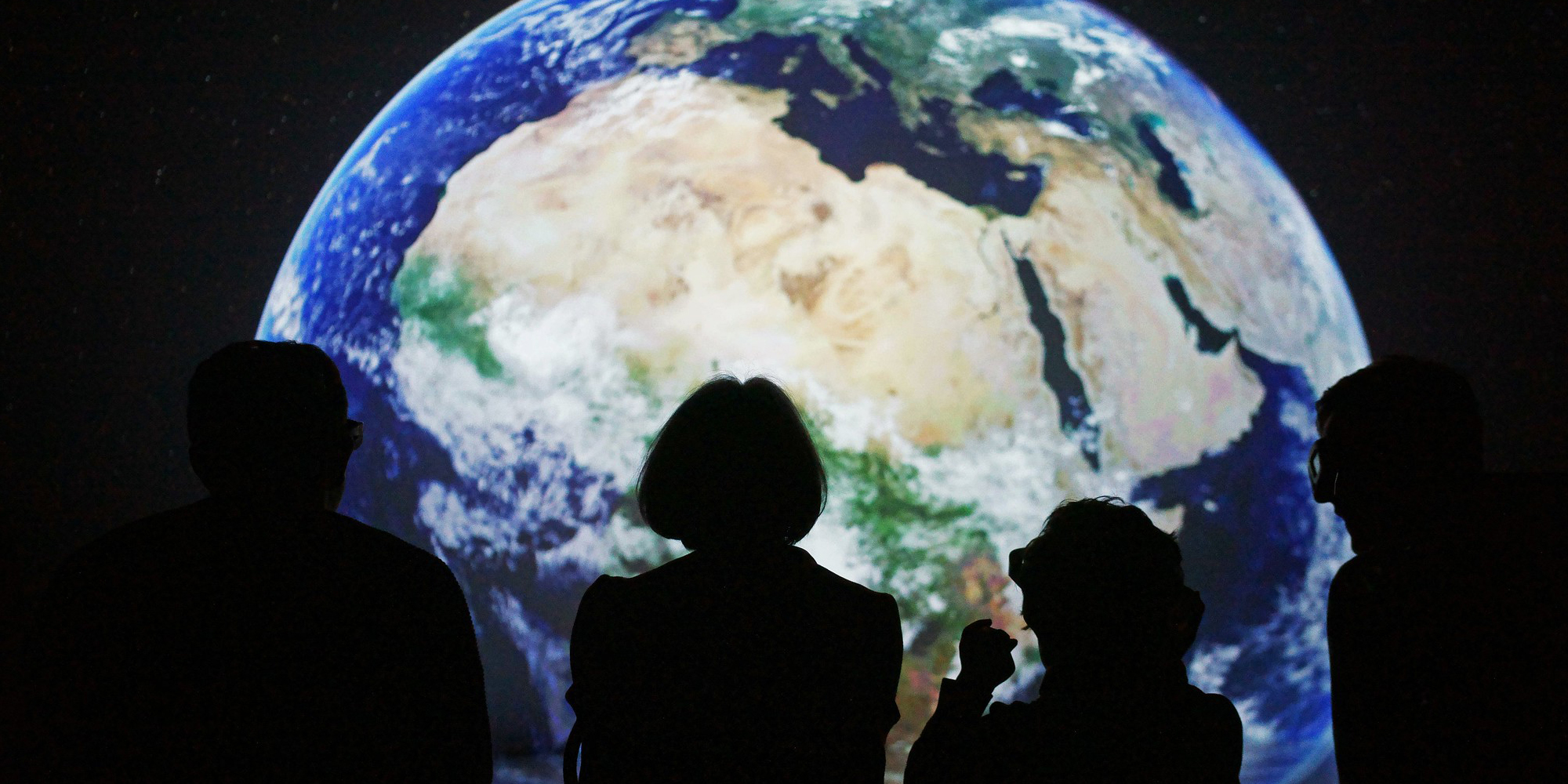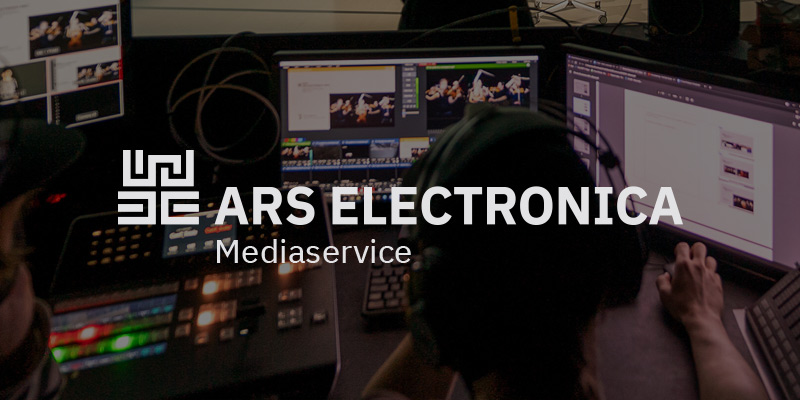press release as pdf
Ars Electronica Blog
(Linz, February 14, 2022) Immerse yourself in the fascinating worlds of tiny creatures, cheat artificial intelligence, get to know the virtual anatomy room of the future, travel the infinite reaches of space in Deep Space 8K and discover tiny details in gigapixel images of world-famous works of art that would remain hidden to the eye under normal viewing conditions. As part of Family Days and Museums Total, visitors young and old can look forward to a whole host of activities at the Ars Electronica Center during the semester break.
Solar Crawling (ages 8 to 10)
WED 23.2.2022 / 10:30 A.M.
“Play is the highest form of research,” Albert Einstein already said. In the Ars Electronica Center’s Kids’ Research Lab, kids engage with solar energy in a playful way and build crawly creatures powered by solar energy.
From Hardware to Soft Tissue – Body Enhancements (ages 10 to 14)
WED 23.2.2022 / 2:30 P.M.
This workshop is all about so-called soft robotics, robotic components that are made of soft and adaptable materials rather than solid components. Applications for these soft robotics include prosthetics or body extensions. Kids are invited to let their imaginations run wild and invent body extensions. How about a pair of wings? Or antennas as sensors?
Klatsch Abklatsch (from 6 to 10 years)
THU 24.2.2022 / 10:30 A.M.
Microbes are tiny creatures that are invisible to the naked eye. In short workshops, 6- to 10-year-olds will dive into the fascinating invisible world of tiny creatures. By simply slapping fingers, pieces of plants and fruit on a special culture medium, the little researchers learn how microbes are made to grow.
Robowabohu (from 10 to 14 years)
THU 24.2.2022 / 2:30 P.M.
A few wheels here, a few connectors there, a gripper arm on the left and right, a light or two on top, and the robot is finished. Time flies when you’re building a robot, but there are plenty of interesting things to learn in the Machine Learning Studio. For example, how machines and robots learn and how they perceive their environment.
Deep Space: Human Universe (for all ages)
THU 24.2.2022 / 4:00 P.M.
Thanks to its sophisticated technical capabilities, the Ars Electronica Center’s Deep Space 8K offers visitors a sensational virtual anatomy room of the future. The two applications Universe Man, developed by the Ars Electronica Futurelab, and Cinematic Rendering by Siemens Healthineers fully exploit the potential of Deep Space and turn the voyage of discovery through the human body into an impressive experience. Whether organs, muscles, bones, the cardiovascular system or the nervous system – layer by layer, the inside of the human being is explored with memorable and vivid 3D visualizations.
The world in barrels (from 4 to 8 years)
FRI 25.2.2022 / 10:30 A.M.
In the Kids’ Research Lab, a series of barrels full of exciting materials and games are just waiting to be discovered by young visitors. The barrels are organized by interest groups, ranging from space to bionics, from the human body to 3D printing.
What AI can do, I have done already! (from 10 to 14 years)
FRI 25.2.2022 / 2:30 P.M.
Artificial intelligence is on everyone’s lips, whether it’s Siri, self-driving cars or online translations. But just to distinguish a tiger from a bear, an AI system needs to be fed a lot of data and trained. The exhibition Understanding AI shows how such training works, what a neural network looks like and how AI can be tricked.
Deep Space: Cultural Treasures (for all ages)
FRI 25.2.2022 / 4:00 P.M.
In the Ars Electronica Center’s Deep Space 8K, there are not only all kinds of media art tidbits or astronomy highlights to see, but also plenty of art treasures. From gigapixel photos of the Venus of Willendorf or Bruegel paintings like the Tower of Babel to the world’s oldest street map and 3D laser scans of the Mayan city of Tikal.
Open Workshop: One/None/Pure Rocket Science (from 6 to 10 years)
SAT 26.2.2022 / 2:00 P.M.
In the Kids’ Research Lab, the universe becomes a research and play space with spaceships, rockets or satellites. But who has ever taken a closer look at such space vehicles? What are they made of and what requirements do the materials used actually have to meet? As they experiment, the children become materials researchers and discover the building materials used in space travel.
Deep Space: Uniview – Journey into the universe in 3D (for all ages)
SAT 26.2.2022 and SUN 27.2.2022 / both 11:30 A.M. & 2:00 PM
Interactive 3D flights through the universe and breathtaking images – that’s Uniview. With this visualization software, nothing stands in the way of a sparse walk on the moon or Saturn’s rings, and even the familiar constellations can be viewed from completely new perspectives.
Bear feeding (from 10 to 14 years)
SAT 26.2.2022 and SUN 27.2.2022 / 11:30 A.M. each day
There are plenty of bears living in the Ars Electronica Center. However, not those of the genus “Bruin the Bear” but water bears, also called tardigrades. These are of particular interest to scientists because they are true survival artists that can defy the most adverse conditions. These little animals naturally need to be nurtured and cared for so that they can grow and thrive.
The world in barrels – the universe (from 6 to 10 years)
SAT 26.2.2022 and SUN 27.2.2022 / each 11:00 A.M., 1:00 P.M. and 3:00 P.M.
In the Kids’ Research Lab, a number of tons full of exciting materials and games are just waiting to be discovered by the young visitors. This weekend, the focus will be on the barrel with all kinds of information about the universe. Young visitors will learn all kinds of space curiosities, such as how much their own weight would be on Mars.
Workshop: Mars Mobile (from 8 to 14 years)
SUN 26.2.2022 / 1:30 P.M.
It is about half the size of Earth, is orbited by two moons and features Olympus Mons, the highest mountain in the solar system: Mars. However, to explore the surface of Mars and carry out research missions, you need a suitable vehicle. In this workshop you have the chance to build your very own Mars mobile with solar energy.
Photo:
Uniview – Journey into the universe in 3D / photo: Ars Electronica – Robert Bauernhansl / printversion
Photo:
Human Universe / photo: Ars Electronica – Robert Bauernhansl / printversion
Photo:
Bear Feeding / photo: Ars Electronica – Robert Bauernhansl / printversion
Photo:
Robowabohu / photo: Ars Electronica – Robert Bauernhansl / printversion


